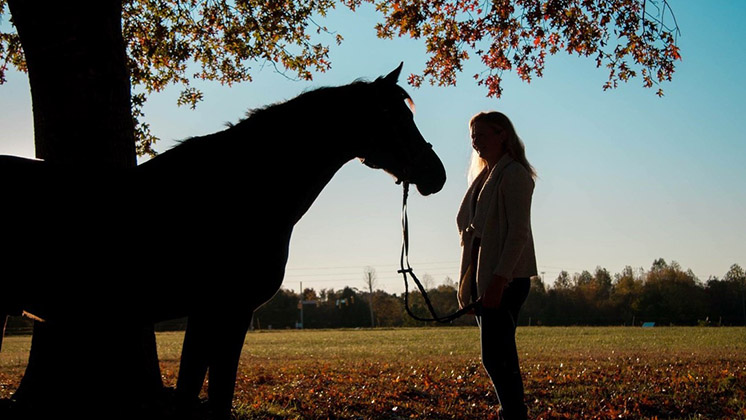Horses, Healing, and Inclusivity in Mental Health Education

Imagine finding a space where your mental health journey is supported not only by trained professionals, but also by the calm presence of a horse. In the world of Equine-Assisted Services (EAS), this isn’t just a dream—it’s a growing reality. A new study explores how programs like The HERD Institute are pushing the boundaries of traditional therapy and education by weaving in diversity, equity, inclusion, and belonging (DEIB) into their very fabric.
Why Horses and Mental Health?
With mental health needs on the rise, especially since the COVID-19 pandemic, there’s a growing push for alternatives to the standard office-based therapy. Enter horses: intuitive animals that, when paired with trained professionals, can help people address deep emotional issues, build trust, and reconnect with themselves and others in unique ways.
The HERD Institute—short for Human-Equine Relational Development—is one such organization offering education in equine-assisted psychotherapy (EFP) and equine-assisted learning (EFL). More than just training with horses, HERD emphasizes DEIB as essential to effective practice.
The Study: Digging Into Lived Experiences
Researchers used a method called Participatory Action Research (PAR) to interview students and graduates of the HERD Institute. The goal? To understand how these practitioners experience and apply DEIB in their work and training. Through rich, conversational interviews, three main themes emerged:
1. Identity and Self-Reflection with Horses
Participants often found themselves examining their own identities—race, gender, class, disability—while learning to work with horses. Some wrestled with discomfort in talking about DEIB, fearing they might say the wrong thing. Others reflected on early experiences of exclusion in equine spaces, recognizing how privilege and appearance shaped their access.
Horses, they found, became mirrors—not just of emotion, but of deeper societal patterns. One participant compared human stereotypes to those imposed on horses, like calling chestnut mares “feisty.” These realizations opened doors to deeper empathy and self-awareness.
2. Knowing the Boundaries: Scope of Practice
A major tension was around what each practitioner is trained and licensed to do. While those on the psychotherapy track must be licensed mental health professionals, EFL practitioners often come from varied backgrounds. Some felt unsure about how much emotional support they could offer without crossing professional lines. When DEIB issues surfaced, especially involving race or microaggressions, practitioners questioned: is it my place to address this?
The answer wasn’t simple—but the study suggests that clearer training and support could help.
3. The Power of Relationships
In the HERD model, relationships are everything—between practitioner and client, human and horse, peer and peer. Participants agreed that meaningful conversations about identity and inclusion only happen when there’s trust. Without real connection, DEIB work risks becoming a checkbox exercise.
One powerful insight: discomfort is part of the process. “We’re budding and crossing edges,” said one participant. The horse-human bond, rooted in mutual respect and presence, becomes a model for human-to-human interactions.
What This Means for the Future of Mental Health Education
The study reveals that programs like HERD offer a glimpse into what inclusive, relational education could look like. But it also highlights gaps—especially in ensuring all practitioners, regardless of background, are equally prepared to handle complex DEIB issues.
For non-traditional learning environments, whether in therapy, coaching, or education, the message is clear: DEIB can’t be an afterthought. It must be embedded in the curriculum, practiced in relationships, and supported by clear guidelines.
Final Thoughts
This research is a call to action. As mental health services expand beyond traditional settings, we must also expand our understanding of what makes those services safe, inclusive, and effective. Horses may help open the door—but it's up to educators, practitioners, and institutions to ensure everyone feels welcome walking through it.
Read the Research Paper
This article was based on the research of Dr. Leanne Nieforth and the HAPI lab. Read the research:
Suggested Articles

The Role of Pets in Managing Pandemic Uncertainty
Discover how pets became essential emotional lifelines during the COVID-19 pandemic, offering comfort, routine, and stress relief amidst unprecedented uncertainty.
Read more
Exploring the Benefits of Animal-Assisted Interventions for Autism Spectrum Disorder (ASD)
Explore the growing impact of Animal-Assisted Interventions (AAIs) for Autism Spectrum Disorder, enhancing social engagement, emotional well-being, and behavioral outcomes, while highlighting research trends and challenges.
Read more
Can Furry Coworkers Improve Mental Health at Work?
Explore how dogs at work boost employee well-being, reduce stress, and build community—plus tips for making pet-friendly policies work.
Read more
